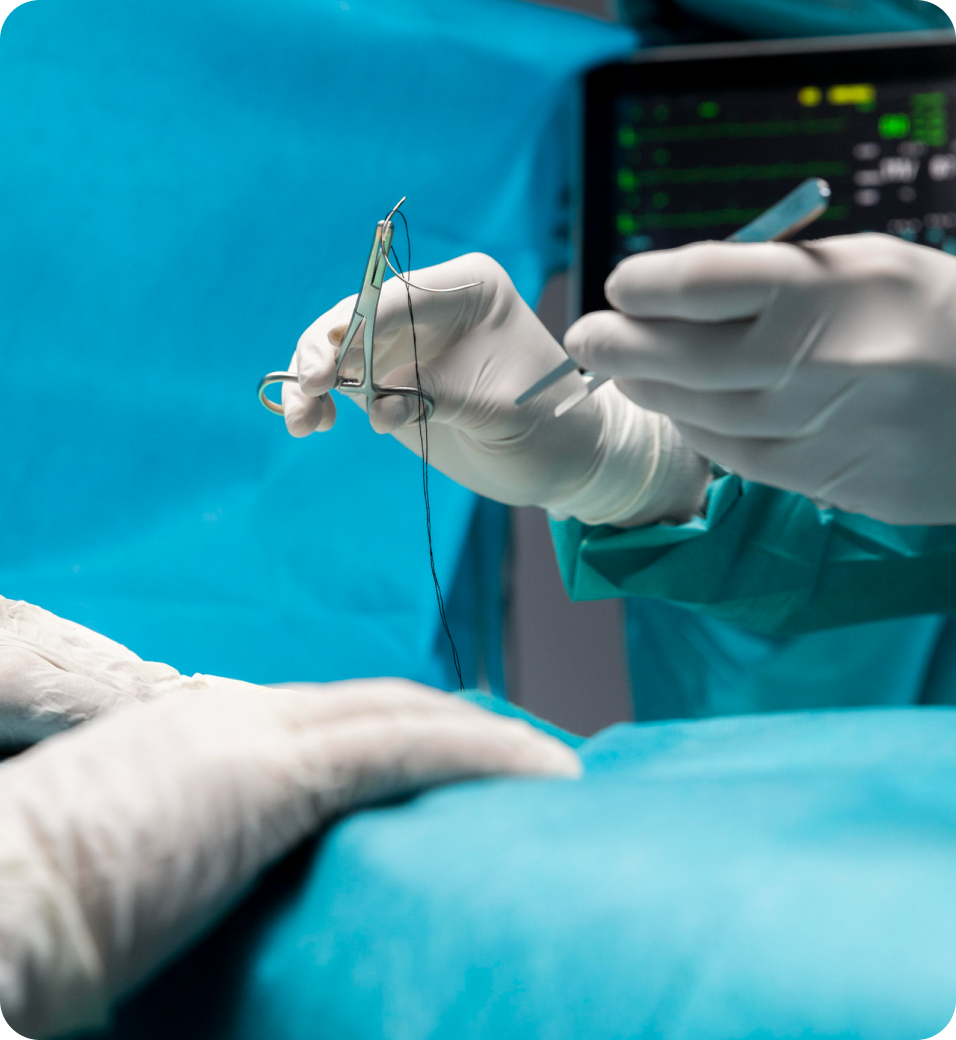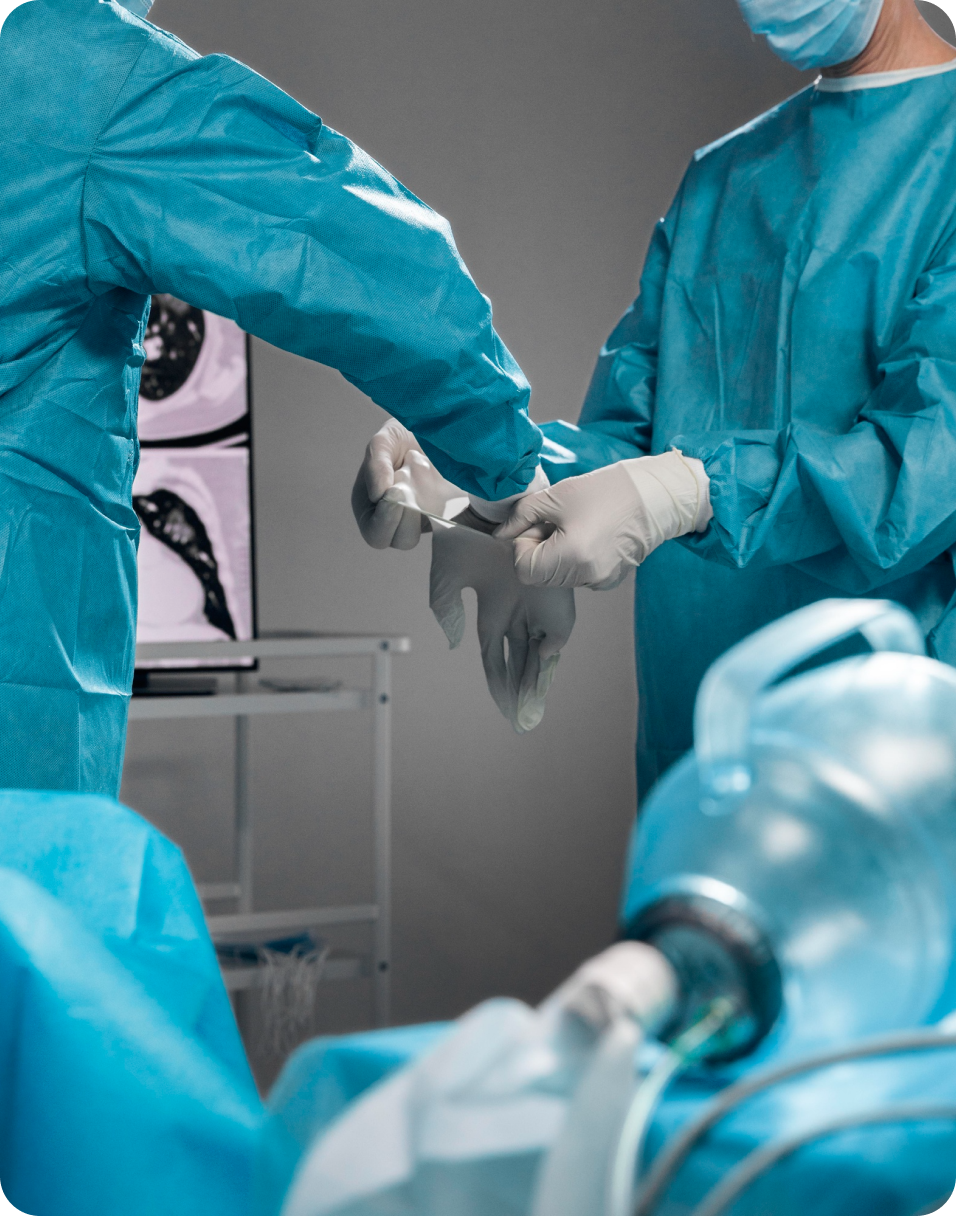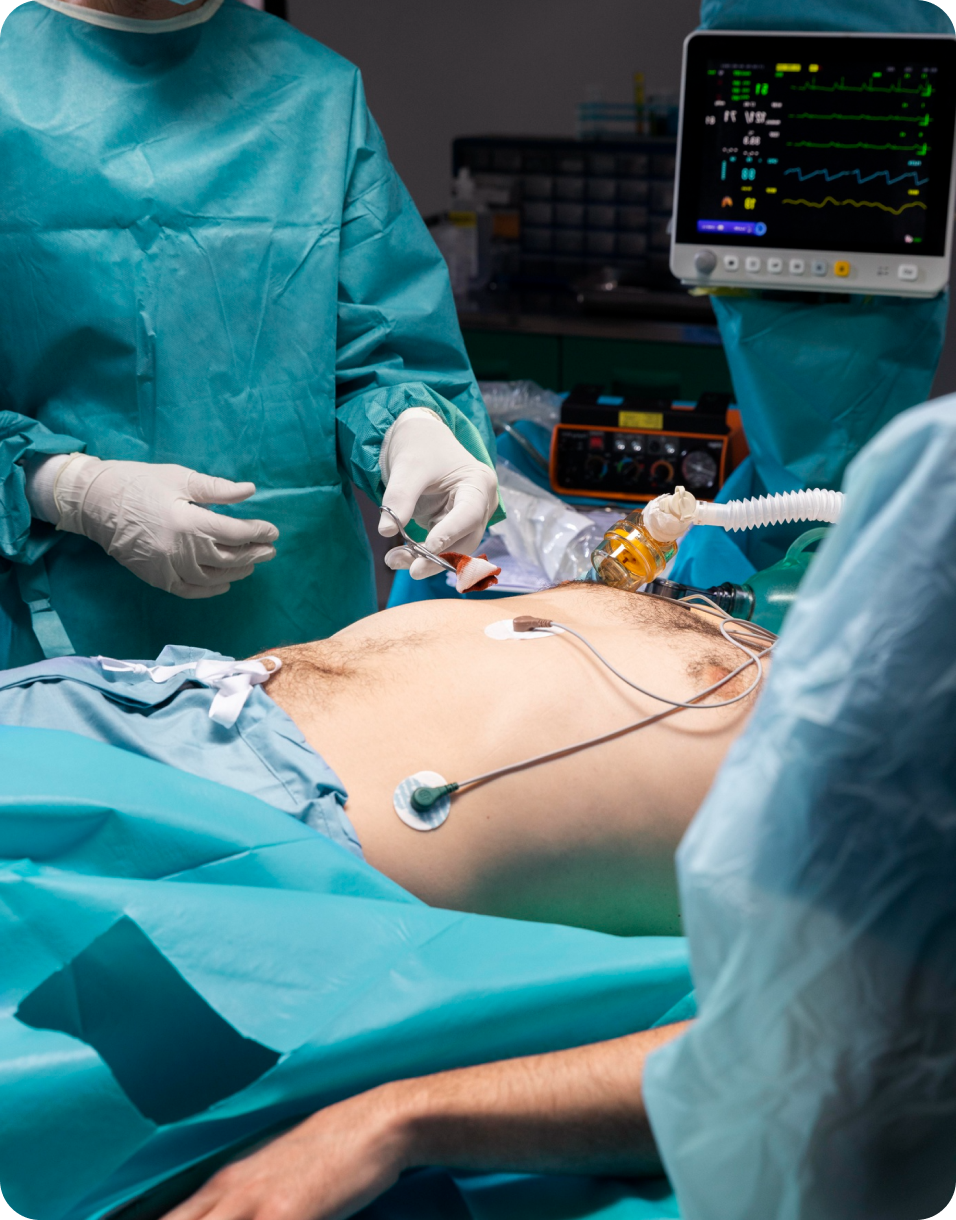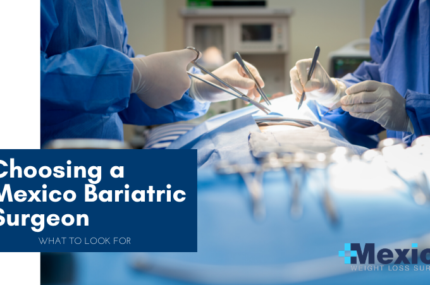Rest, Recover and Rejuvenate! How Your Weight Loss Surgery in Mexico Recovery Time Will Help You Heal

We all know that rest and relaxation are good for the soul.
But for a person who has just undergone weight loss surgery, this phrase has never been more true.
key takeaways
Effective post-surgery recovery is possible through proper care of your body, dietary adherence, and gradual physical activity.
- The Initial Recovery Period: The First Few Days
- You Are What You Eat: Navigating the Dietary Transition
- Get Physical! How Exercise Helps with Overall Healing
- Building a Support System: Your Key to Long-Term Success After Bariatric Surgery
- Mexico Weightloss Surgery Center: A Place to Rest, Relax, and Begin Your Next Chapter
Rest and relaxation are a key part of the recovery process for any type of bariatric surgery.
Whether you’ve just undergone a gastric bypass surgery, a gastric sleeve surgery, or even a revision of an older type of surgery, weight loss surgeries require that your body has a chance to recover before the weight loss journey can truly begin.
But knowing the right way to rest and what your body needs to relax may be a challenge for many bariatric patients.
This guide is going to help lay out the recuperation plan that you will want to follow, as well as some key tips to make sure that you’ve done everything you can to help your body begin the next exciting chapter to true life-changing weight loss when it’s time.
Ready to get started? Then take a deep breath and let’s begin.
The Initial Recovery Period: The First Few Days
Embarking on the journey of weight loss surgery is one that will be most rewarding if you know what to expect and prepare for in the time following your surgery…particularly in the first few days.

Any major surgery will require some special protocol to be put into place, and bariatric surgery is no exception to this.
Let’s take a look at what these first days post-surgery are going to look like for most bariatric patients.

Surgery Day
In the hours following your surgery, it is very common to experience mild pain and discomfort after waking up from anesthesia. And while pain medications can be given, you’ll want to make sure you’ve chosen a facility where constant and easy communication with the medical staff is possible so they can carefully monitor your pain levels.
In fact, having a medical staff that’s easy to communicate with is going to be vital during your entire hospital stay.
In addition to some discomfort, you will likely have a drain tube that is installed for a couple of days post-op in order for your bariatric surgeon to be able to detect any leaks.
Schedule Your Consult
Explore candidacy. Book a consultation to learn more about your eligibility and take the next step towards your goals.

Day 1 Post-Op
Within 24 hours of your surgery, you’ll most likely be able to shower, which most patients say makes them begin to feel like themselves again. Moving around (carefully) is important for your healing at this point and your medical team will assist you in getting out of bed and walking around.
Not only will you start moving your body to promote healing, but you’ll also begin your post-op diet, which will start with clear liquids. You want to take in nutrients to help you keep your strength, but you’ll also want to eat foods that are easy on your stomach, which means clear liquids will be best.
Staying hydrated is also crucial during this period. Your body is made up of mainly water and keeping it well hydrated is going to be a crucial part of your healing. No matter which of the weight loss procedures you have, remember that drinking water is going to help you recover faster.
Days 2 thru 5
By day two, most bariatric patients are ready to go home.
Most weight loss surgery packages, like Mexico weight loss surgery, include a stay for at least a day or two after the surgery is complete (and you should avoid any that don’t offer this!) You’ll want to make sure your surgery center sends you off with plenty of instructions on how to care for yourself upon your return home as well as contact numbers where you can reach your medical team if you have any questions or any complications arise.
Your continued healing and recovery will be contingent on you choosing a surgery center that has the right protocol in place to support your healing process even after you return home.
At Mexico Weightloss Surgery Center, for example, we offer excellent aftercare as well as long-term support, staying in touch with you and making sure you are able to lose weight and keep it off successfully, long after you’ve returned home.
You Are What You Eat: Navigating the Dietary Transition
Your recovery period will have a lot to do with you listening to and taking care of your body.

And a big part of listening to your body will be making sure you nourish it properly.
Bariatric surgeries do a great job of decreasing the amount of caloric intake your body can handle, making it essential that you do the work of making sure to consume quality nutrients so that your body functions properly.
But remember: slow and steady wins the race.
Let’s look at how your eating habits should evolve after your gastric bypass or gastric sleeve surgery is behind you.
Phase One: Clear Liquid Diet (Days 1-7)
Purpose: This phase is crucial for allowing your body to heal and to ensure proper hydration, which will then lay the foundation for your entire recovery process.
Goal: The primary objective is to achieve a daily fluid intake of 64 ounces, with a minimum of 48 ounces to prevent dehydration. Sipping slowly and avoiding gulping are essential practices.
Duration: This phase should last around 7 days, although it can be extended to 14 days based on your individual needs.
Tip: It’s imperative to sip slowly and adhere to the approved list of clear liquids, which includes water, broths, and specific beverages.
Phase Two: Thick Liquid Diet (Days 8-14)
Purpose: This phase will facilitate your continued healing while also allowing your digestive system to adapt to the changes post-surgery.
Goal: Ensuring a fluid intake of at least 48 ounces, consuming 60–90 grams of protein, and targeting a minimum of 600 calories daily is going to be best for this stage of your recovery process.
Duration: Phase 2 should last a minimum of 7 days, which will offer a smooth transition toward more substantial nutritional intake in the weeks and months to come.
Tip: Continue to think about the importance of hydration. It is key for your overall health, especially as you begin to prepare for the transition to more solid foods.
Phase Three: Soft Solids Diet (Days 15-21)
Purpose: This is the stage where you will get to begin introducing soft, solid foods! This marks a significant step in diversifying your diet and promoting overall well-being and healing.
Goal: Strive for a total meal intake of 4 ounces at first and make sure to include 20 grams of protein, and target a minimum of 800 calories daily.
Duration: Phase 3 should last a minimum of 7 days, with a focus on incorporating easily digestible soft solids into your growing palette of options.
Tip: Maintain the high hydration rule for effective digestion.
Phase Four: Solid Foods Diet (Day 21 and Beyond)
Purpose: This stage signifies a more extensive incorporation of firmer foods, allowing you to have a broader range of nutritional options.
Goal: During this time you’ll want to aim for 4-6 ounces per meal, incorporate 20 grams of protein, and try to achieve a calorie intake of 1000–1200 calories daily.
Duration: Phase 4 is designed to be a long-term plan, and will hopefully encourage you to have a sustainable approach to your new post-bariatric dietary habits.
Here are some key guidelines to think about for each phase:
When Eating, Chew Thoroughly and Slowly: Emphasizing the importance of mindful eating to support proper digestion and nutrient absorption.
Gradually Introduce New Foods: Recording reactions in a food diary ensures a systematic and personalized approach to dietary changes.
Learn Good Hydration Practices: Ensure a steady intake of at least 6 cups (48 ounces) of water and low/no-calorie fluids between meals for hydration.
Avoid Specific Weight Loss Foes: Steering clear of alcohol, caffeine, carbonated beverages, straws, and gum to prevent complications.
Be Cautious with Certain Foods: Exercising vigilance with specific foods, especially those that may cause digestive discomfort.
Remember this: Even though the above phases are a good rule of thumb for most people after their weight loss procedures, you should always consult with your own healthcare professional to make sure this is the plan they want you to adhere to.
PRICING & COSTS
Explore surgery expenses and pricing details to better understand the associated costs for your medical procedure.
Get Physical! How Exercise Helps with Overall Healing
Your recovery journey will need to extend beyond just nutrition if you plan for it to be effective long term.
Regular and rewarding physical activity is going to be the next brick in your strong weight loss foundation.

Start With Something Gentle (and Enjoyable!)

Gentle exercises, tailored to your post-surgery capabilities, contribute significantly to your recovery.
Initiating movements, such as walking and light stretching, will help stimulate your blood flow, prevent complications like blood clots, and kickstart your body’s natural healing mechanisms.
Not only that, but slow and gentle initial movement will allow you to begin to get in touch with your new body and relearn how it operates.
Find things that are fun for you to do and be patient with yourself as you begin. Be mindful of being careful and don’t do anything overly stressful that can cause an injury, which will set you back in your recovery process.
Gradually Increase for Strength and Flexibility
Once your body starts to feel comfortable with low key exercise, it’s time to move on to low-impact!
Low-impact activities will add a bit of intensity to your workout, but they won’t be overly taxing on your body.
You can try things like stationary biking, low-incline stair stepping, or low impact group exercise classes.
You may also want to begin to incorporate strength-building exercises that will enhance muscle tone and support the structural adjustments your body is experiencing following surgery.

Gentle stretches contribute to improved flexibility, ensuring a smoother recovery process.
Long-Term Lifestyle Changes for Life-Long Well-being

This is the time for you to consider incorporating the types of exercise into your daily routine that will help you achieve true lifestyle changes.
Embrace daily walks, opt for stairs instead of elevators, and engage in activities that align with the person you ultimately want to be.
These subtle changes will begin to contribute to the overall active and healthier lifestyle you have dreamed of and will make everything you’ve gone through worth it in the end.
Building a Support System: Your Key to Long-Term Success After Bariatric Surgery

Embarking on the post-bariatric surgery journey is a transformative experience and having the right support can be instrumental in achieving and maintaining your desired weight loss. When considering bariatric surgery, it’s common to weigh it against other options like diet and exercise alone. Looking at weight loss surgery vs diet and exercise can help inform your decision. Ultimately, the most sustainable approach combines multiple strategies.
Here are some key resources to look for…even before your weight loss procedure takes place:
Support Groups and Online Resources
Joining support groups, whether in-person or online, provides a platform to connect with individuals who share similar experiences, challenges, and victories.
These communities offer a safe space to discuss concerns, seek advice, and celebrate milestones.
The collective wisdom and encouragement from those who understand your journey can be a powerful motivator.


A Reputable Bariatric Surgery Center
The choice of your bariatric surgery center is going to play a pivotal role in your post-surgery success.
Opting for a reputable and supportive center, such as Mexico Weightloss Surgery Center, ensures that you have a dedicated team guiding you through every phase of your weight loss journey.
From experienced bariatric surgeons to a caring and skilled support staff, a comprehensive bariatric center becomes a partner in not only your short-term needs but in your long-term goals as well.
Other Bariatric Surgery Patients
In the realm of weight loss, sharing the journey makes it more attainable and more meaningful.
Connecting with others who are on a similar path can be a big game-changer in your success and healing, since these are people who have gone through this medical procedure and can empathize with you in a way no one else can.
Whether you have had a gastric bypass or a gastric sleeve procedure, you will benefit from finding others who are on this journey as well.

Remember, you don’t have to navigate post-bariatric life alone.
With the right resources and support, you can forge ahead with confidence, knowing that every step is backed by a community dedicated to your success.
Mexico Weightloss Surgery Center: A Place to Rest, Relax, and Begin Your Next Chapter

Achieving your desired weight loss isn’t a one-time event…it’s about establishing sustainable habits that will stay with you long after you have traveled back home.
Finding a supportive bariatric center will give you the initial rest and the long-term resources you need to help you for years to come.
When you’re ready to embark on your weight loss journey, reach out to Mexico Weightloss Surgery Center. Our board certified bariatric surgeons and excellent health care team can’t wait to help you start your success story. Let’s start it today!
Mexico Bariatric Experts
Uncover the Renew Bariatrics Difference with Mexico Bariatric Experts – Your personalized journey to transformative well-being.
FEATURED BLOGS
How to Choose Mexico Bariatric Surgeon
Concerns about having a bariatric procedure is a normal and expected element of the decision. These worries are…
Read MoreWhich Bariatric Surgery is Best?
Obesity is one of the most common health issues in America. Obesity may further lead to a number of…
Read More

